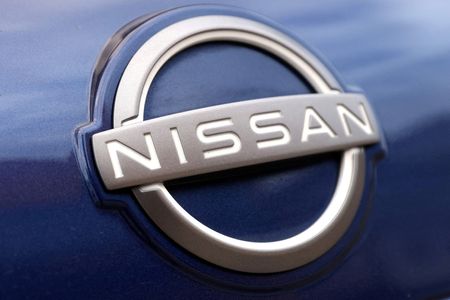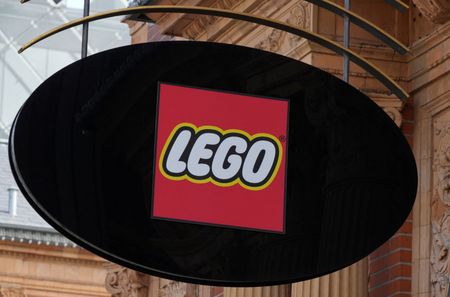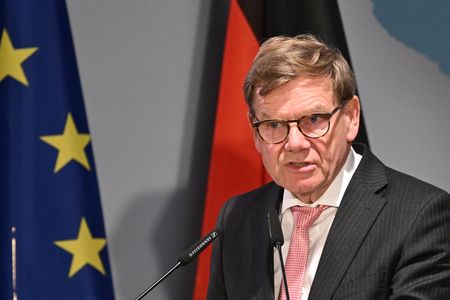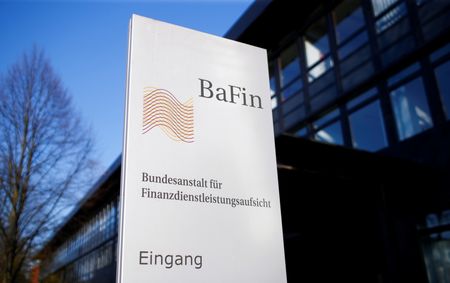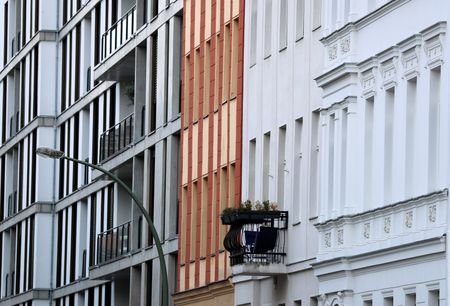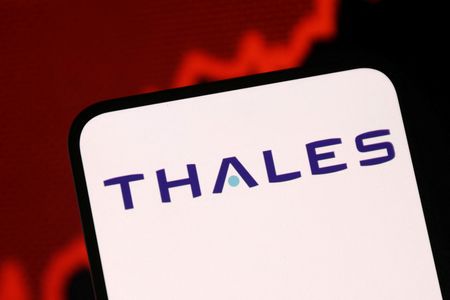By Daniel Leussink
TOKYO (Reuters) -The French government is reviewing whether Nissan’s European business paid suppliers on time, and it has asked the automaker to submit extensive financial records for 2024, correspondence reviewed by Reuters showed.
The French economy ministry’s competition department informed Nissan Automotive Europe of the review last month, saying it was part of a broader effort to ensure companies were paying their suppliers promptly, according to an August 19 letter.
It plans to inspect Nissan’s regional headquarters in Montigny-le-Bretonneux near Paris on October 7 as part of the process, the letter shows.
The scrutiny comes as the company is undertaking a sweeping global turnaround plan aimed at cutting $3.4 billion in costs and returning to growth.
The Japanese automaker has not been accused of any wrongdoing. Nissan Europe was instructed in the letter to submit accounting and payment records from January 1 to December 31, 2024, and other documentation ahead of the inspection of its regional headquarters.
Nissan could face administrative punishment, including fines, if violations are found, it was told in the letter. Under French law, companies must pay suppliers within 60 days of an invoice being issued or risk penalties of up to 2 million euros ($2.36 million).
The French investigation and other contents of the correspondence, which did not name the affected suppliers or the number involved, have not been reported previously.
Reuters reported in June that Nissan offered some suppliers in the European Union and Britain the option to get paid more if they agreed to accept delayed payment, a move that would help the struggling automaker free up short-term cash.
It is not uncommon for companies to request payment extensions from suppliers to manage cash flow, and it was not clear what prompted regulators to scrutinise Nissan’s actions.
Nissan Automotive Europe received a request for information from a French authority about supplier payments made from its European headquarters in France, the company said in a statement to Reuters, without providing further details.
“No wrongdoing by Nissan has been indicated in the request, and we are fully cooperating with the authority in question and ready to provide the necessary information and clarifications,” it added, without naming the authority requesting the information.
A spokesperson for the French economy ministry’s competition department declined to comment.
FRANCE SCRUTINISES PAYMENT DELAYS
France has stepped up investigations into late payments between companies, with the competition directorate inspecting 409 firms in the first half of 2025 and finding violations at nearly 40% of them. The investigations led to about 47 million euros in fines.
That compares with 248 inspections during the first five months of 2024 – the only similar period with publicly available data – when the regulator found irregularities at around 28% of companies and issued almost 30 million euros in fines.
The French review marks the latest headache for Nissan. Last year, Japanese regulators found it underpaid dozens of suppliers by a total of 3 billion yen ($20 million) over a two-year period. Nissan paid the money before the investigation was announced, and Japanese regulators also recommended it improve oversight of supplier payments.
Overdue payments can put strain on small and mid-sized companies, raising the risk of job losses and even bankruptcy, according to a European Commission fact sheet. Around a quarter of all bankruptcies in the EU are linked to late payments, it said.
EU member states are required to ensure that business-to-business payments in their country comply with the bloc’s regulations requiring payment within 60 days unless it is expressly agreed otherwise and not unfair.
Some 47% of business-to-business invoices in Western Europe are overdue, trade credit insurer Atradius found in a May survey. The number is higher in France, at 52%.
Nissan posted a $535 million loss in the April-June first quarter, its first quarterly operating loss in four years. The automaker’s turnaround plan includes cutting about 15% of its global workforce and closing or consolidating seven plants.
It is targeting positive free cash flow by its 2026 financial year, as weak sales in China and the U.S. compound the fallout from an earlier expansionist strategy.
($1 = 147.2300 yen)
($1 = 0.8478 euros)
(Reporting by Daniel Leussink; Additional reporting by Gilles Guillaume in Paris; Editing by David Dolan and Jamie Freed)

